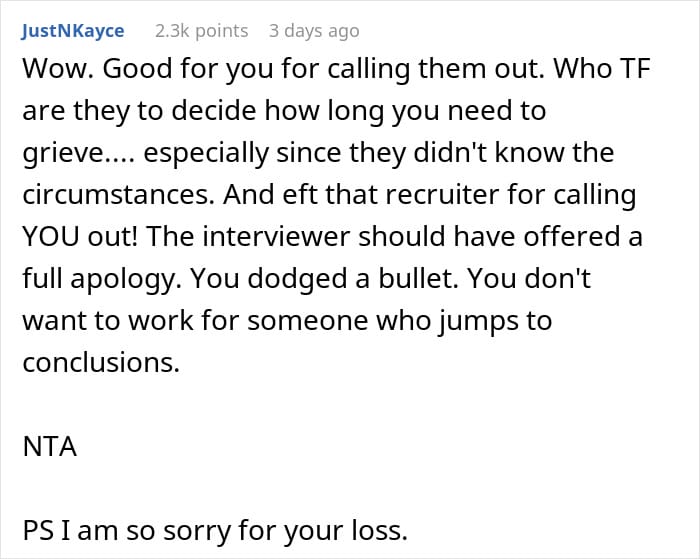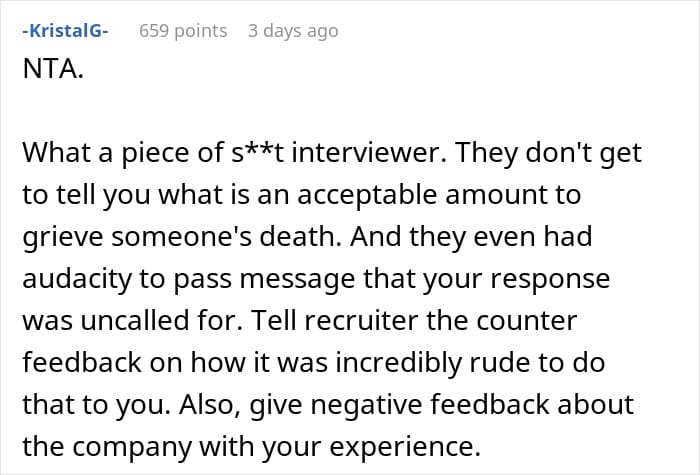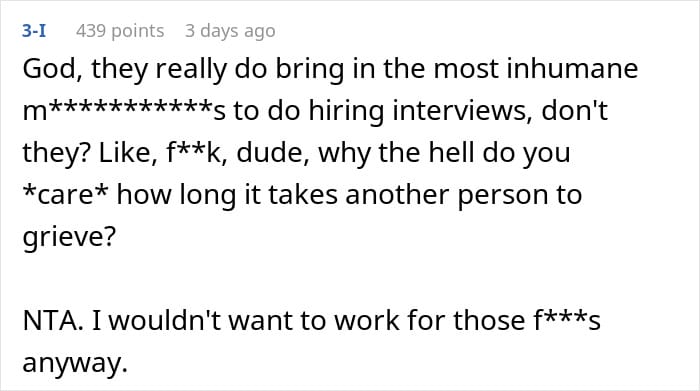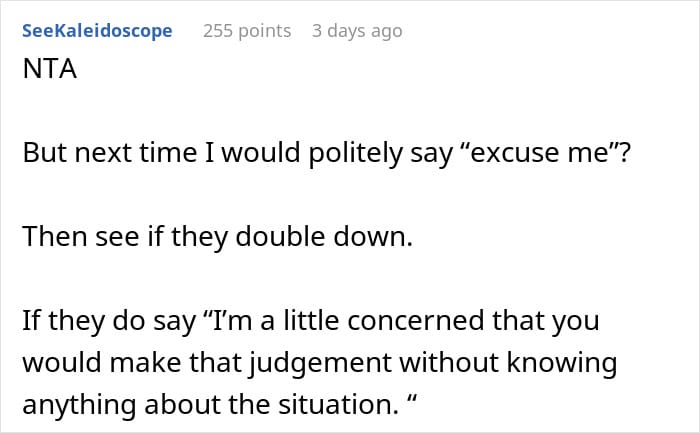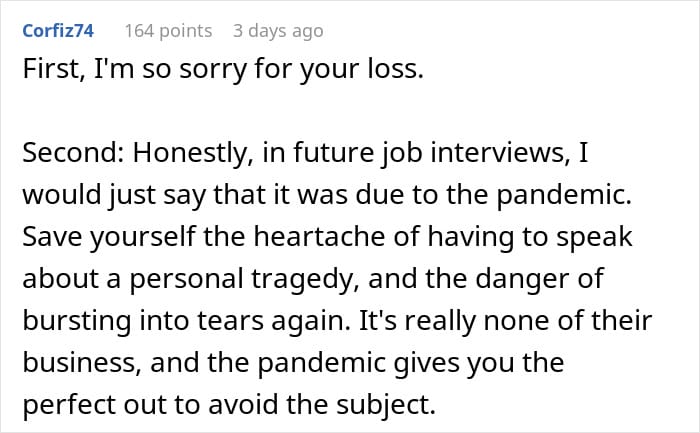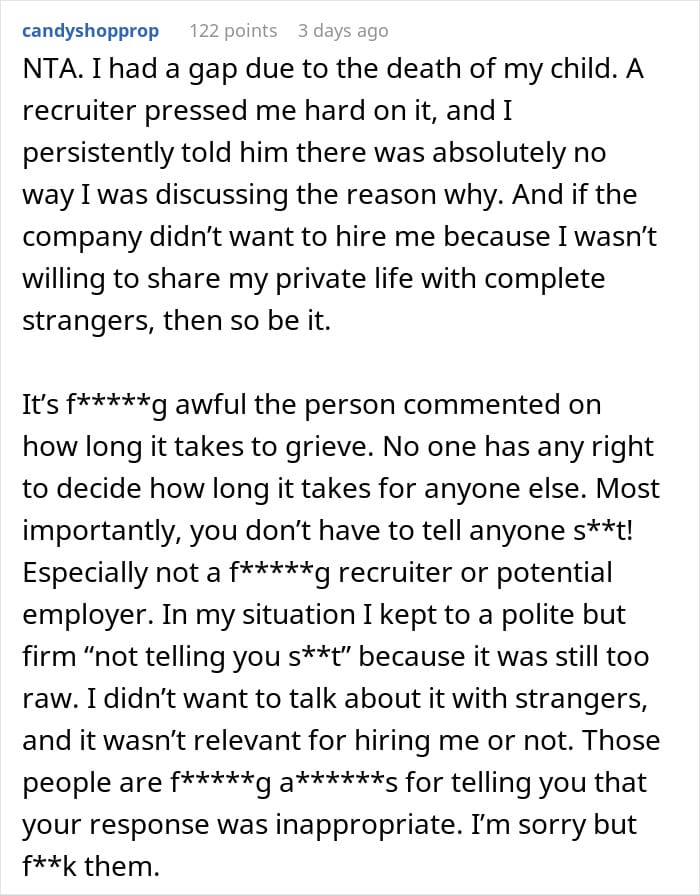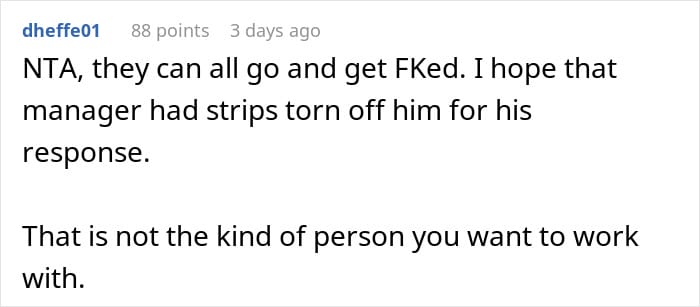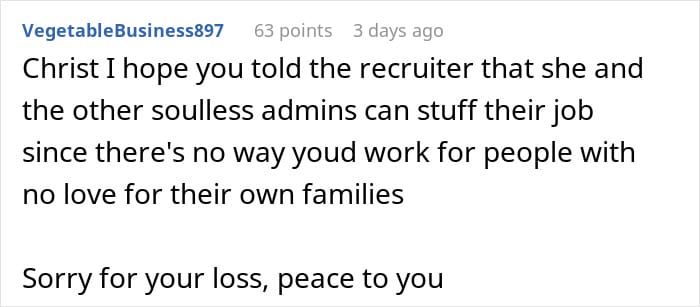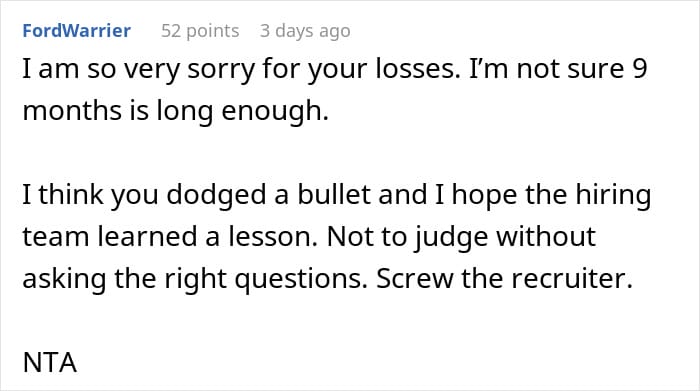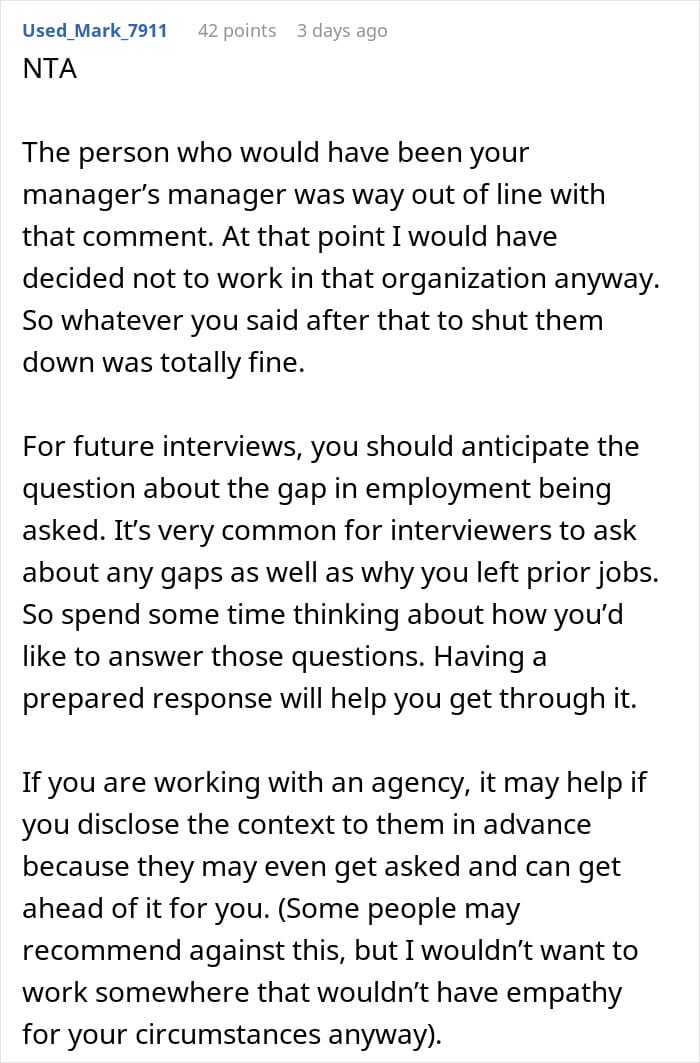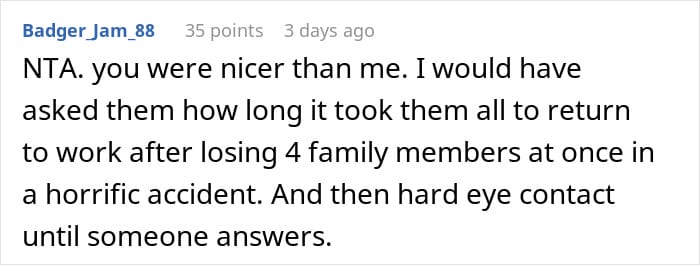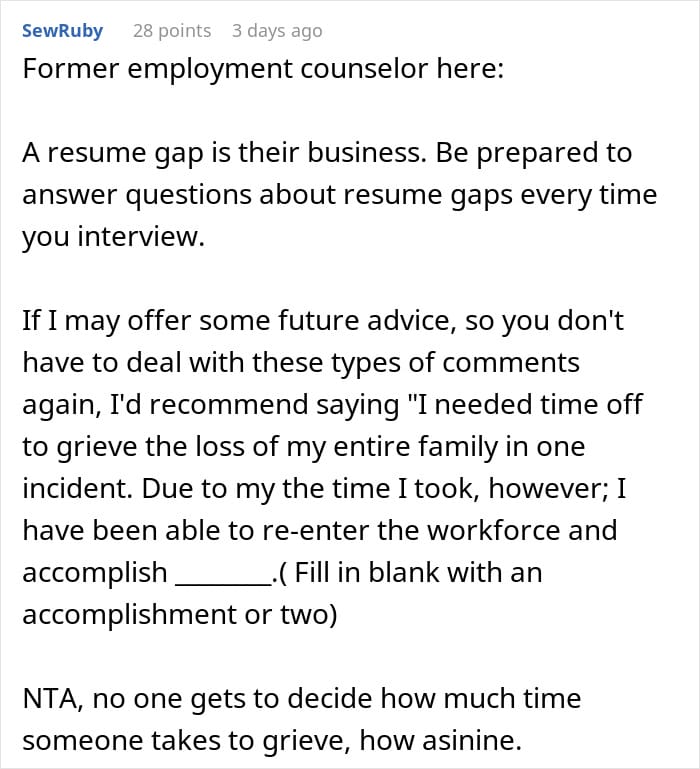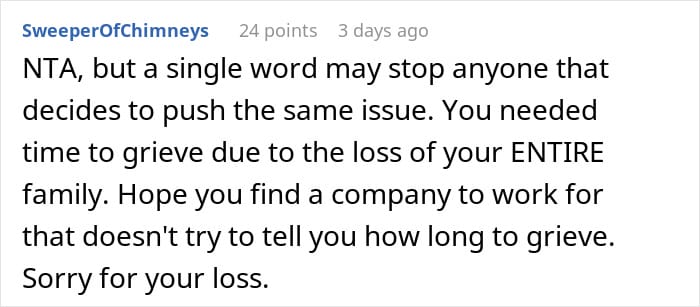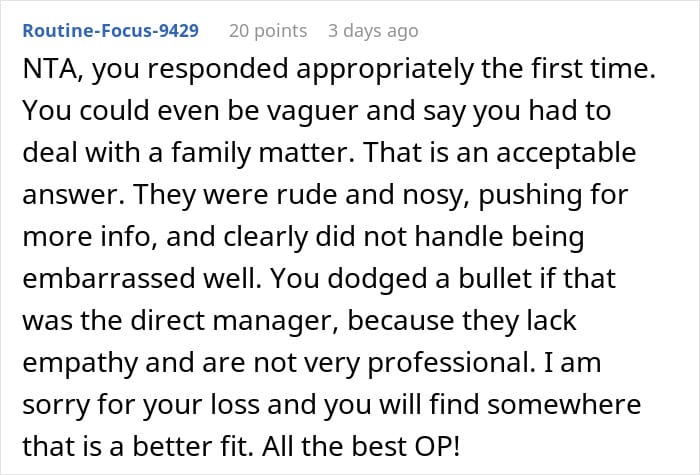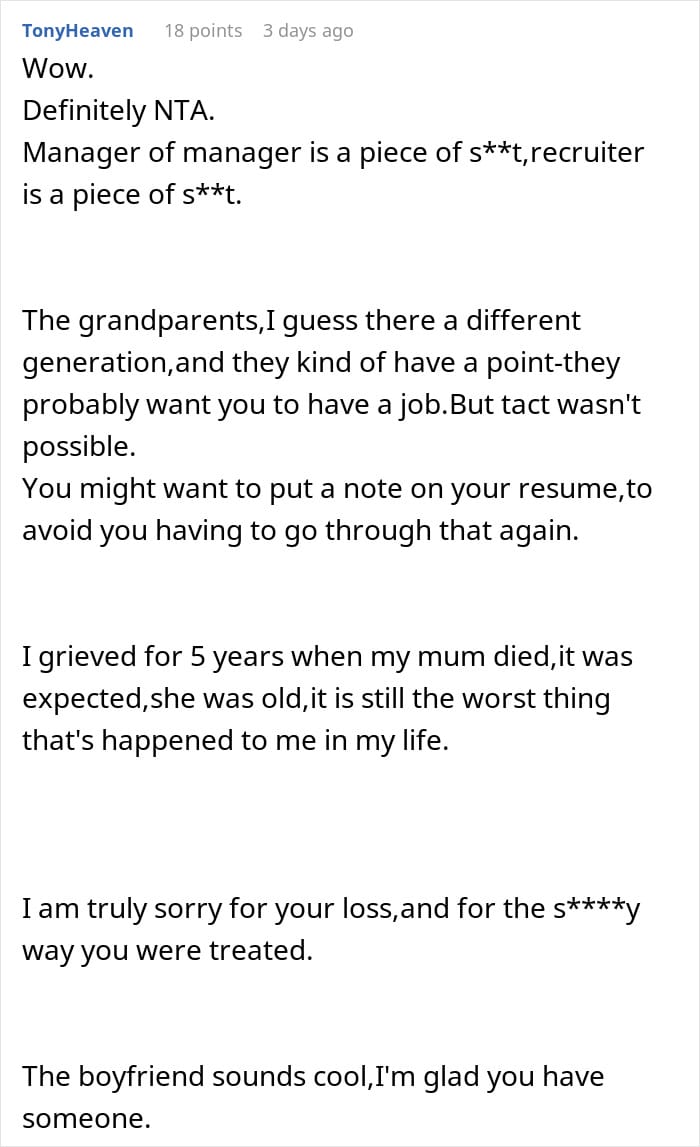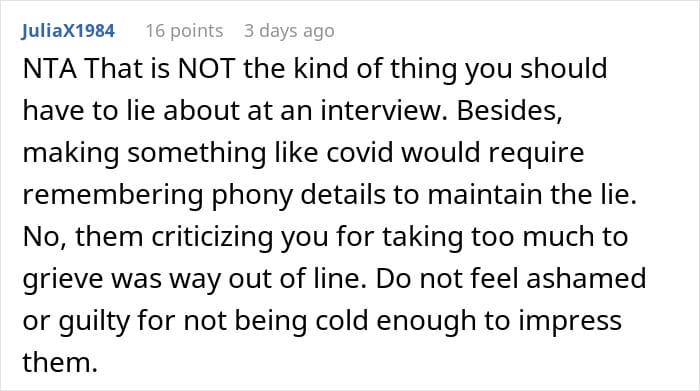There are a myriad of reasons why a person might take a break from working. However, knowing how to approach these résumé gaps can be quite challenging, especially when it’s the last thing an individual wants to talk about.
A case in point is redditor NeitherDepth5290, who recently shared his experience of trying to address the 9-month empty space on his CV. His motivation for it was more than justifiable, but the interviewer went completely wrong about it, pushing him to snap back.
Scroll down to find the full story and a conversation with an executive leadership coach and founder of Heart Writing Services, Constance Johnson, who kindly agreed to answer some of our questions about résumé gaps
Knowing how to approach résumé gaps can be quite challenging
Image credits: Tima Miroshnichenko (not the actual photo)
Not ready to address his, this man snapped back at his interviewer
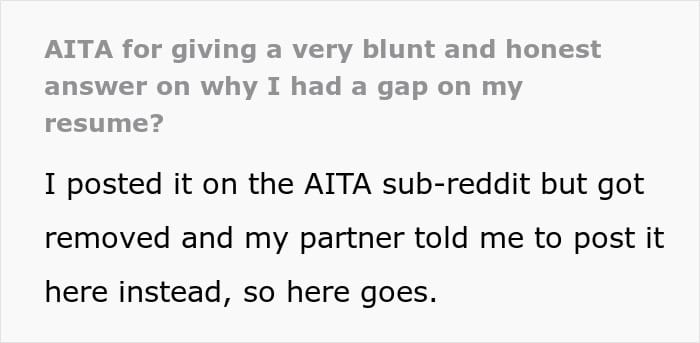
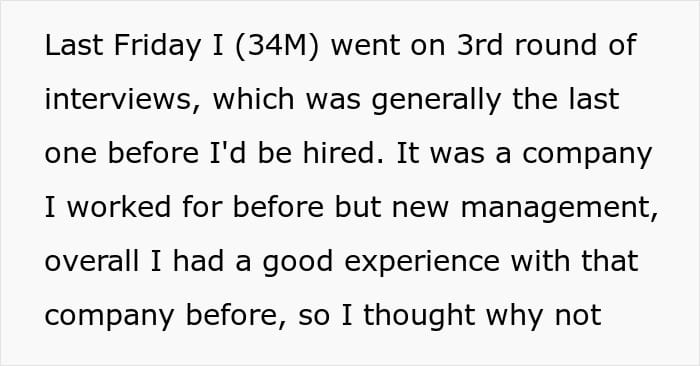

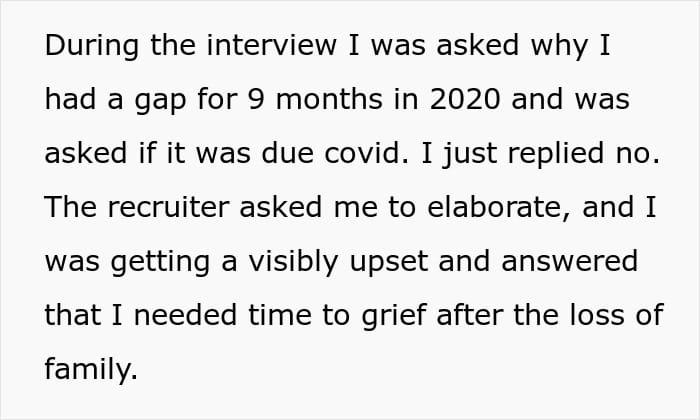
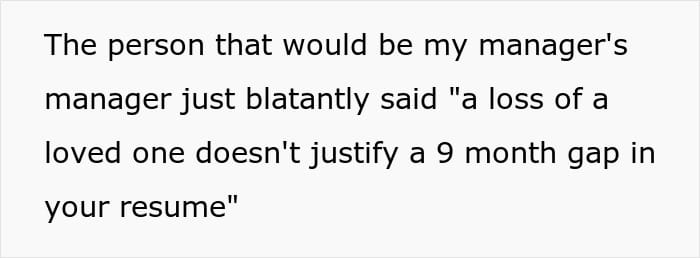

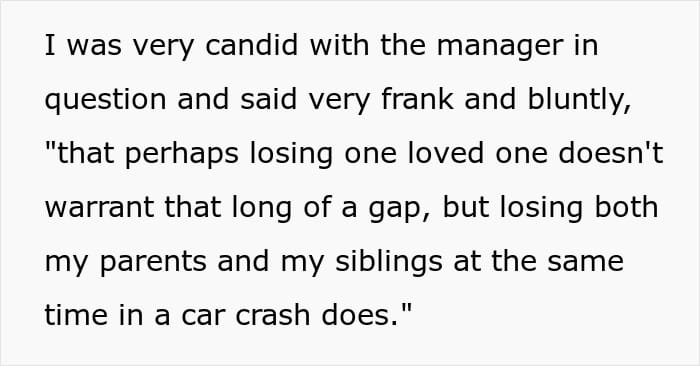
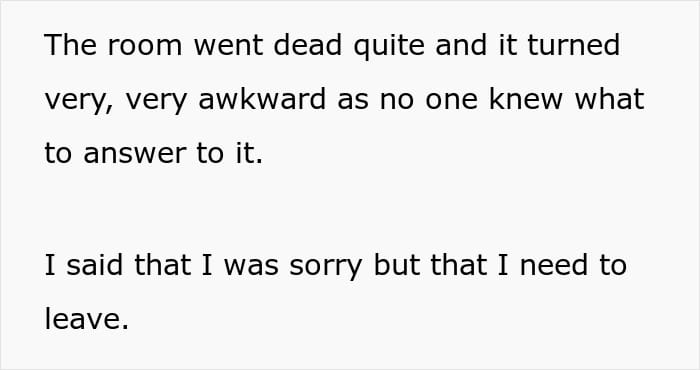
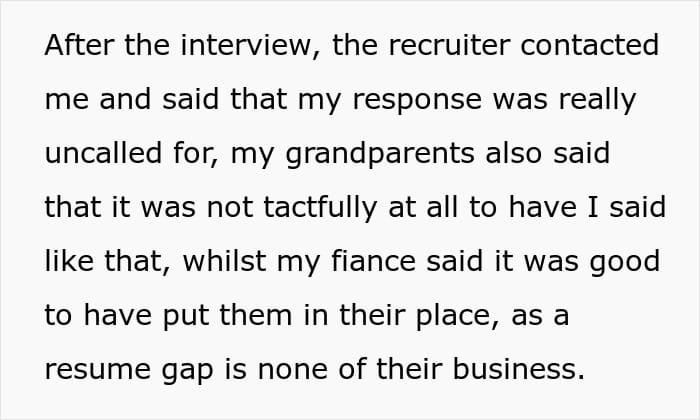
Image credits: Andrea Piacquadio (not the actual photo)
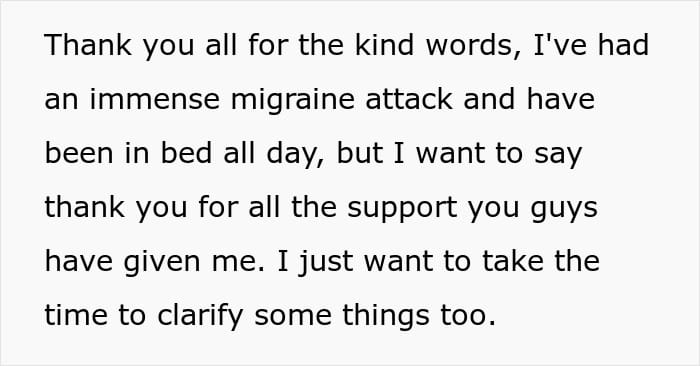

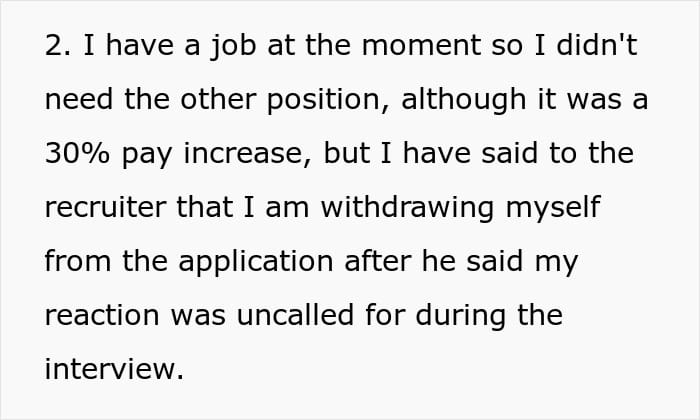
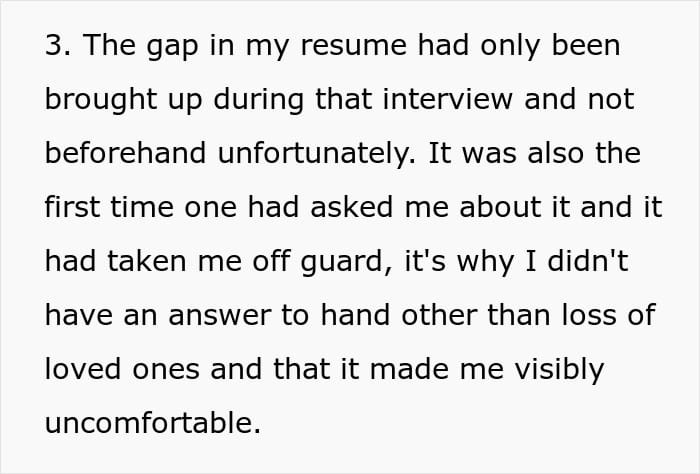
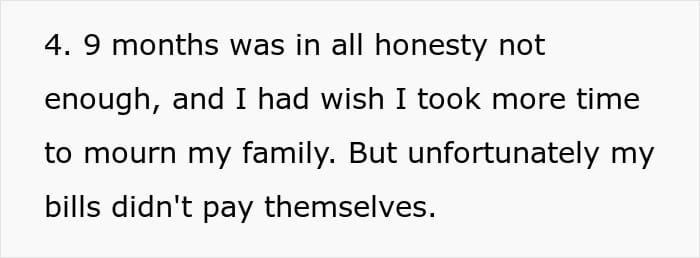
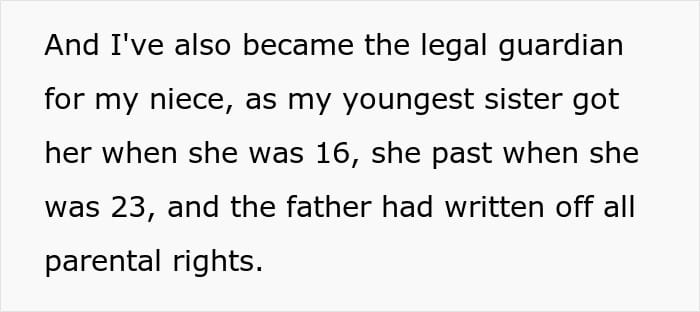
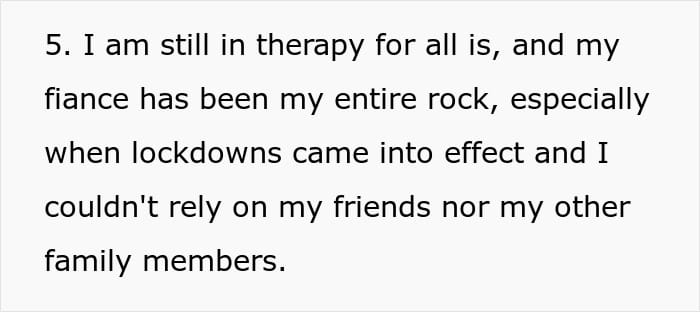
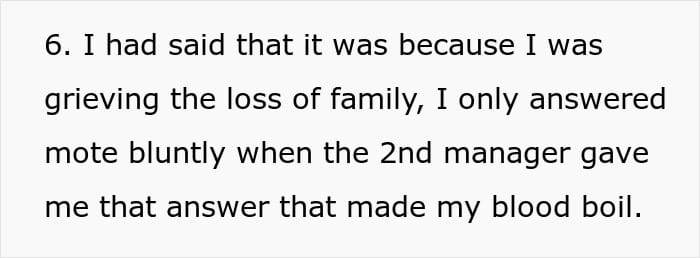

Image credits: RDNE Stock project (not the actual photo)
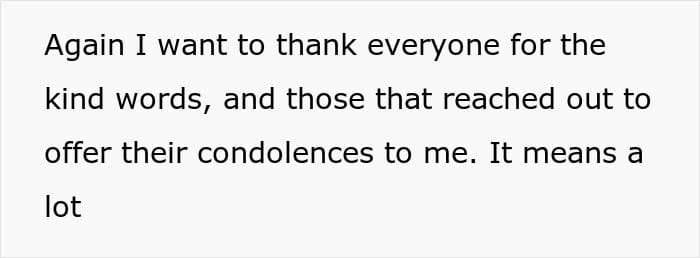
Image source: NeitherDepth5290
84% of people believe there is a stigma associated with being out of work
Image credits: Anna Shvets (not the actual photo)
When an employee loses a family member or a close loved one, they can use bereavement leave to grieve their passing and use the time to arrange funeral services. In the US, a worker on average receives one to five days off, with three being the most common.
A return to routine might be good for some, as there really isn’t a right way to grieve. However, it’s very unlikely that a person can fully function just 72 hours after losing an immediate family member. Since some companies don’t offer bereavement leave or employees find it insufficient, they might decide to take a break from work, just like the author of this story.
Consequently, this creates a résumé gap, which can be undeniably tough to address, as it was found that 84% of people believe there is a stigma associated with being out of work. Meanwhile, roughly 67% assume that this affects their ability to find a new job.
To learn more about how to address such an employment situation, We reached out to executive leadership coach and founder of Heart Writing Services, Constance Johnson. She says, “You should emphasize transparency and resilience when addressing a bereavement gap on your resume during interviews. Briefly describe the circumstances, highlighting how you handled your responsibilities with integrity and professionalism.”
She additionally advises to “demonstrate continuous growth and readiness to contribute by emphasizing the skills and experiences gained prior to and after the gap. Employers appreciate honesty and adaptability. Use this opportunity to showcase your ability to overcome challenges with grace and determination.”
The person isn’t required to disclose personal reasons for resume gaps
Image credits: Tima Miroshnichenko (not the actual photo)
Even though transparency can be a good thing, Johnson notes that it’s not required to disclose personal reasons for resume gaps, such as bereavement. What is important is maintaining professionalism and focusing on skills, experience, and accomplishments.
She adds, “You can explain the gap subtly in a cover letter or during an interview, if asked, with a brief, general explanation. Employers typically value honesty and discretion. The purpose of a resume is to highlight qualifications relevant to the position. In the end, discretion is key; it is a balance between transparency and boundary-keeping.”
On the other hand, interviewers should remain respectful of resume gaps by framing questions around career transitions or growth opportunities. Johnson further explains, “For instance, they might want to know about any significant life events that have influenced your career path. This will enable you to address the gap organically. Alternatively, they can ask about skills acquired during the gap or projects undertaken, focusing on your professional development.”
A good interviewer will approach the topic with empathy, taking into consideration that personal circumstances may vary. Jonhson notes, “By maintaining a supportive and non-judgmental tone, interviewers create a space for candidates to comfortably share relevant information while ensuring the conversation remains professional and respectful.”
Commenters supported the author’s answer
